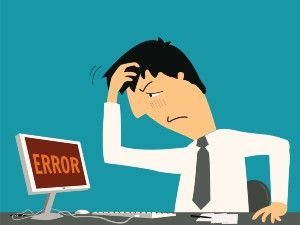 Credit Report Errors After Bankruptcy
Credit Report Errors After Bankruptcy
You’ve reached the end of the bankruptcy process, your debts have been discharged, and you’re excited about what your financial future holds. And then you hit a snag: a debt you thought was discharged is still showing up on your credit.
What should you do?
First, realize this is why it’s so important to keep track of your credit report. You should be doing this whether you’ve filed for bankruptcy or not, but especially if you’re exiting bankruptcy. Anyone who wants to know more about your credit history is going to use this information to judge you, so you must know what they’re going to see. And if what they see is erroneous, you need to take action to fix it.
Where should you begin?
Start with a Credit Report Review
Begin by making sure what you’re seeing really is an error. Credit report errors most commonly occur because the former creditor doesn’t bother updating the report. They might even continue to cause more damage to your credit score by mishandling the situation. The sooner you have discharged creditors out of your life the better.
Unfortunately, errors happen all of the time and can occur on one credit report without happening on the other two. Make sure you review your report from all three major credit bureaus so you know all of them are accurate.
You should check your credit reports without 90 to 180 days after you receive a bankruptcy discharge.
The most common errors include:
- Not labeling discharged debts as “discharged in bankruptcy”
- Continuing to have repeated “hard pulls” on your credit from a creditor even though they no longer have the right to do so
- Listing debt as “charged off,” which cannot occur after you’ve filed for bankruptcy or received a discharge
- Reporting discharged unsecured debt as still owed on a formerly secured debt (this tends to happen with auto loans and second and third mortgages most often)
- Reporting a spouse has filed for bankruptcy when he or she did not (debts can be listed as “included in bankruptcy” but not that the non-filing spouse filed)
- Listing reaffirmed debts as “discharged in bankruptcy” instead of “reaffirmed” (You can learn more about reaffirming debts here.)
If any of these errors are on your credit report after your bankruptcy or you suspect something else is listed in error, you need to take action. This requires submitting written disputes to the creditor in question, as well as the credit bureau that has the erroneous report.
One of two things will happen: the problem will be fixed and you’ll continue as before, happy to be moving toward a better financial life or you’ll need to file a lawsuit to fix the problem. The good news is if you must file a lawsuit to fix a credit reporting error, the Credit Bureaus are responsible for your legal fees. It’s not going to cost you anything, other than a little time and a moderate amount of frustration to correct the problem.
If you want to talk to someone about your post-bankruptcy credit report or you believe there’s an error and you’ve been unable to remedy the problem on your own, we can help. Contact the Bankruptcy Law Office of Robert M. Geller at (813) 254-5696 to discuss your situation or schedule a bankruptcy lawyer consultation.







 Credit Report Errors After Bankruptcy
Credit Report Errors After Bankruptcy



















![Signs That You May Need to File Bankruptcy [Infographic]](https://djml3wkzi26ea.cloudfront.net/wp-content/uploads/2021/01/signs-chap7-v-chap13.jpg)
![How To File for Bankruptcy [Infographic]](https://djml3wkzi26ea.cloudfront.net/wp-content/uploads/2020/07/bankruptcy-steps-infographic-web.jpg)










